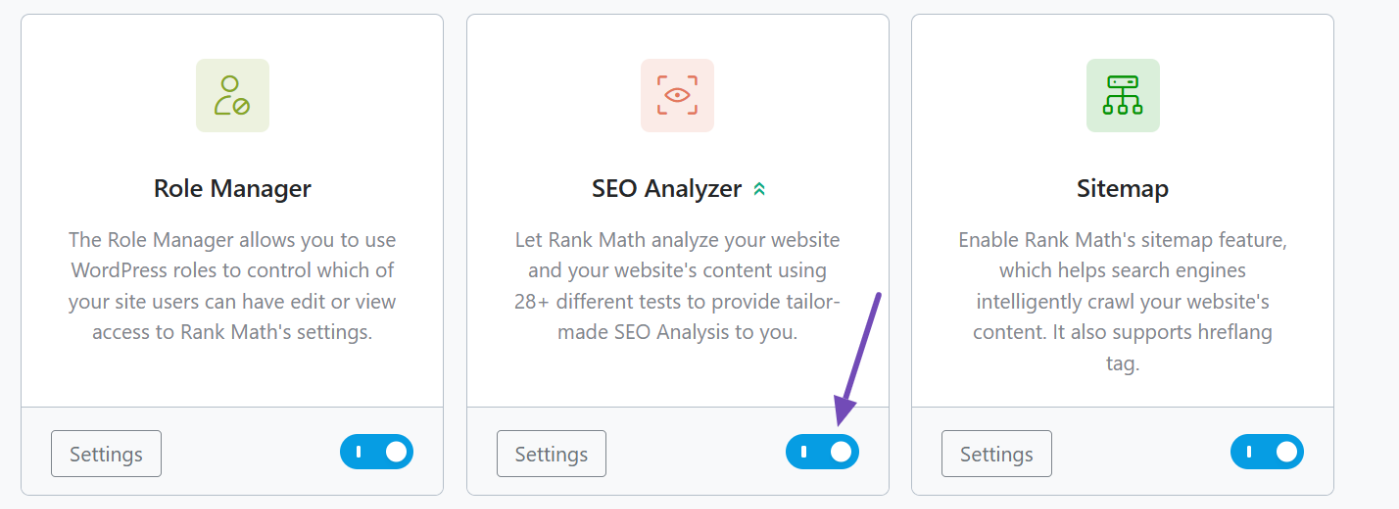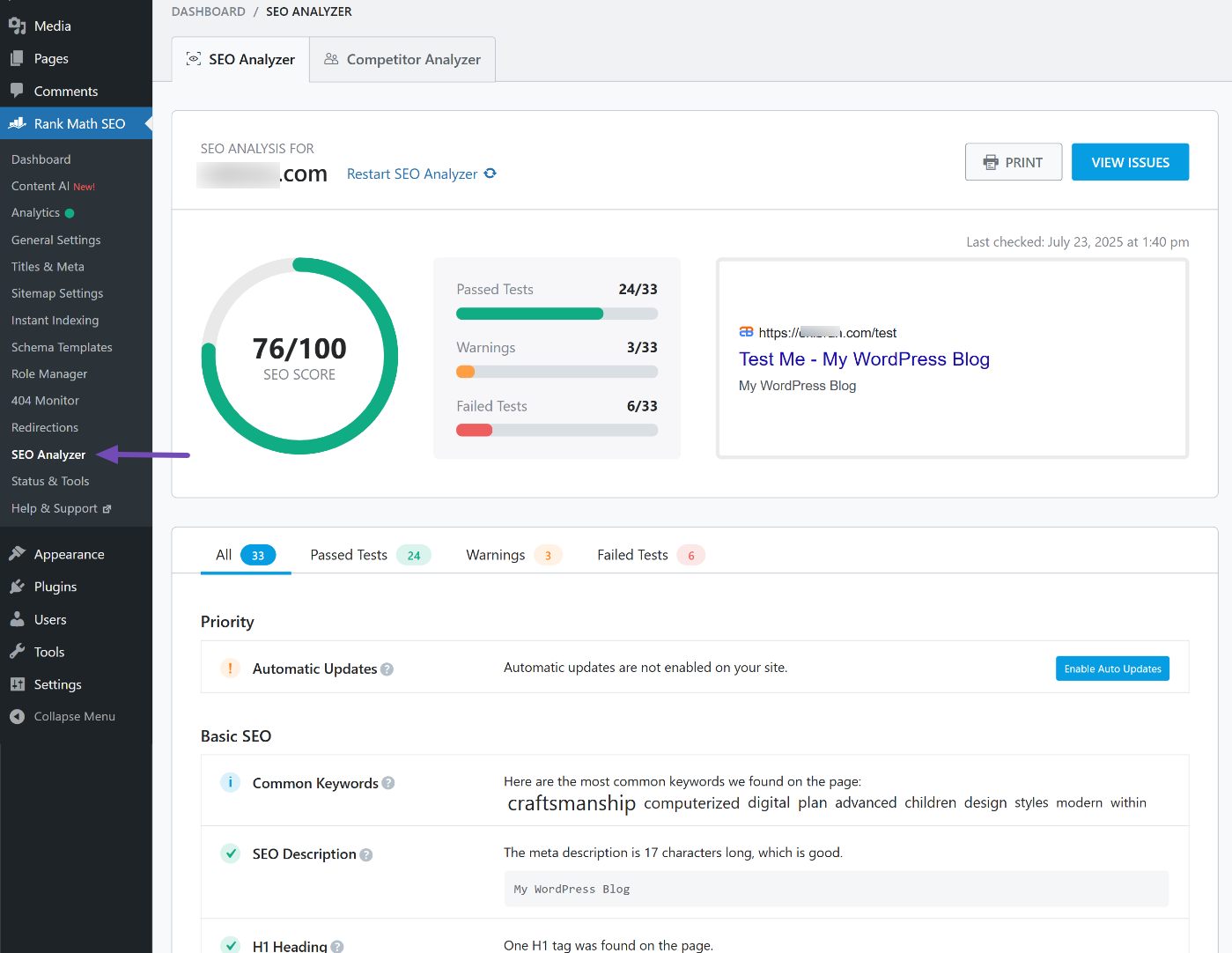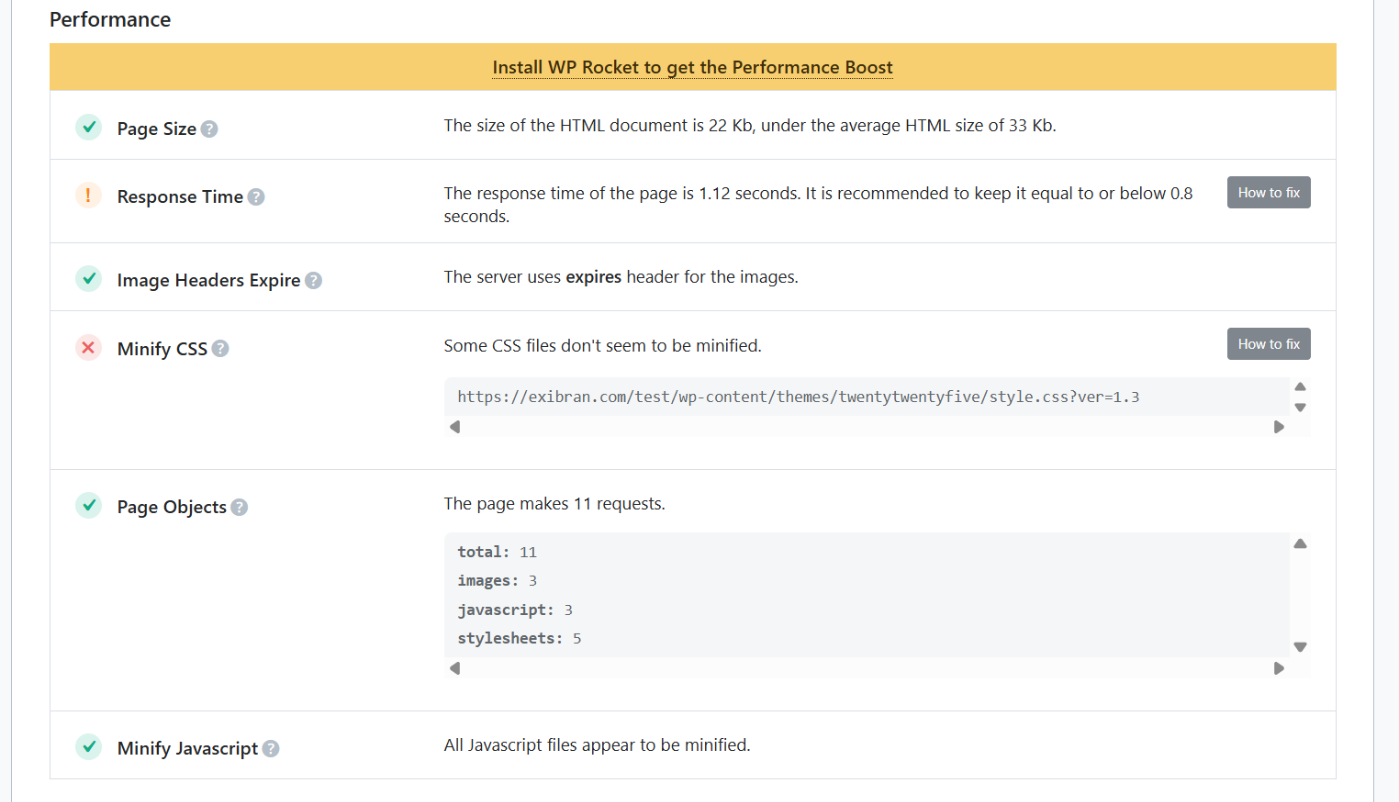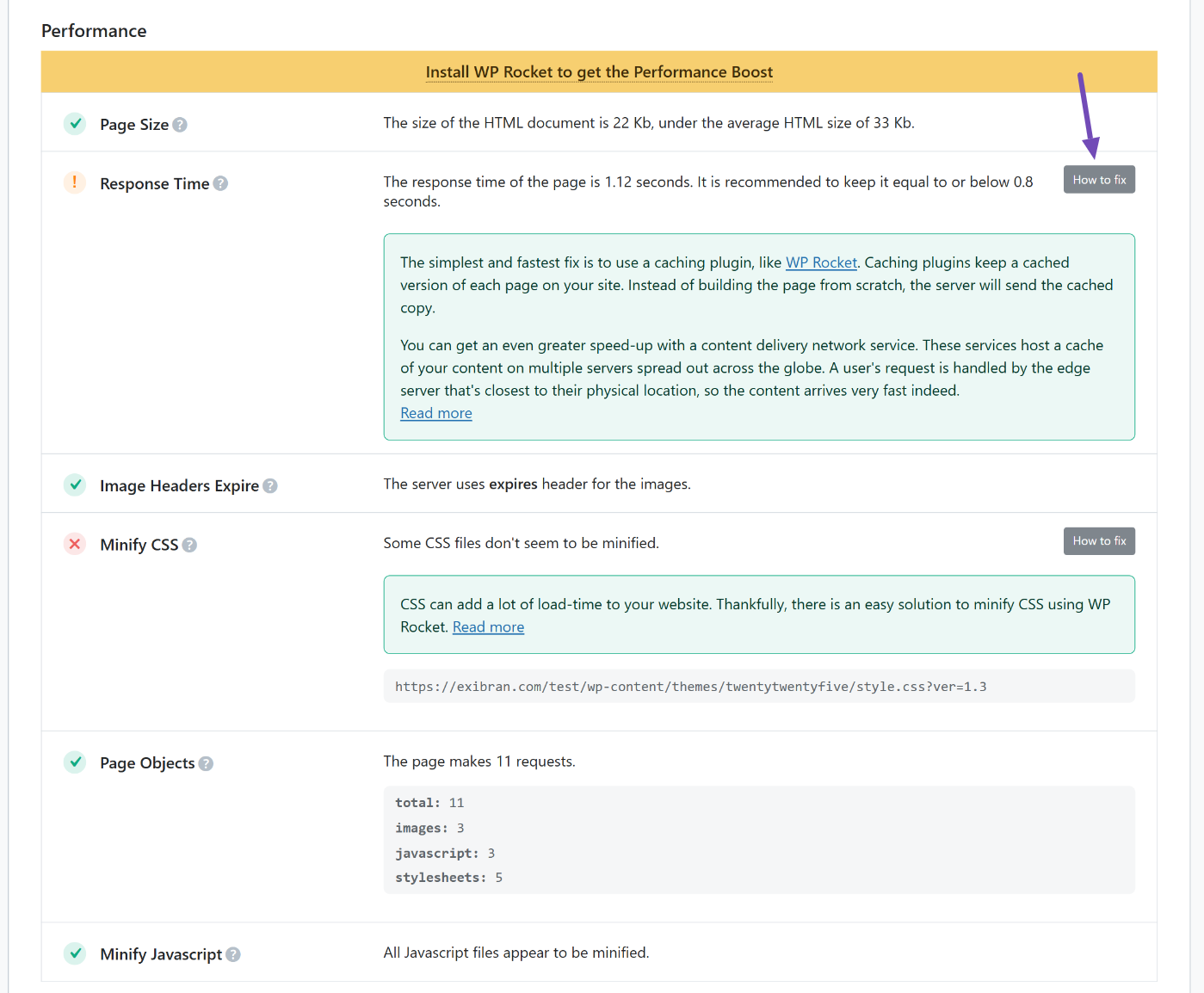Performance issues often start subtly: a slight drop in traffic, marginally slower load times, or fewer returning visitors. Your pages may take just a second longer to load, but that delay adds up. Over time, your site can fall behind in both user engagement and search rankings.
Site speed isn’t just a technical metric; it directly affects SEO, user experience, and your site’s perceived credibility. Even minor slowdowns can lead to significant performance issues, especially on WordPress.
Fortunately, testing your site speed is easy with the Rank Math SEO plugin. In this knowledgebase guide, we’ll show you exactly how to run a proper speed test inside WordPress and pinpoint what may be slowing your site down.
1 Why Test Your WordPress Site Speed?
Many site owners test their speed once, usually after launch, and never revisit it. Others skip testing altogether, unaware of how much a slow-loading site can hurt their performance and growth.
If that sounds familiar, your site may already be paying the price.
Think about it: how long are you willing to wait for a website to load? A few seconds? Probably less. Most users won’t wait; they’ll bounce.
And if your WordPress site is slow, those visitors leave before they ever see your content. That’s lost traffic, missed engagement, and declining rankings.
Site speed is a confirmed ranking factor. Google considers load times, dwell time, and bounce rates. A slow site means shorter visits, higher bounce rates, and poor crawl efficiency—all of which contribute to lower visibility in search results, regardless of content quality.
And the issue is even more critical on mobile. With over 60% of web traffic coming from mobile devices, performance problems on smartphones are more damaging.
Large images, bloated plugins, and heavy themes tend to load slower on mobile, often without the site owner realizing it.
If you’ve been asking:
Why is my WordPress site running so slow? How can I speed it up? Or what’s the best way to test site speed in WordPress?
This guide is for you. The sooner you take action, the sooner you can identify and resolve the issues that are slowing down your site. Running a WordPress site speed test is the first step.
2 How to Test Your Site Speed in WordPress
If your site is underperforming, running a proper speed test will help you uncover the cause. Here’s how to do it using Rank Math SEO.
2.1 Install and Activate Rank Math SEO
The most efficient way to test your site’s speed inside WordPress is by using the Rank Math SEO plugin. It helps you effortlessly improve your search engine rankings and drive targeted traffic to your site—all while staying inside your dashboard.

It also includes a built-in speed testing feature, allowing you to analyze your site’s performance without relying on external tools or requiring any technical knowledge.
Rank Math is free, beginner-friendly, and designed to simplify optimization, from fixing on-page SEO to improving performance signals that impact visibility.
To begin, install and activate the plugin. If you haven’t used Rank Math before, check out our detailed guide on how to set it up the right way.
2.2 Access the SEO Analyzer
Rank Math includes an integrated SEO Analyzer that reviews your website for critical SEO and performance indicators. To enable it, navigate to Rank Math SEO → Dashboard and activate the SEO Analyzer module, as shown below.

Next, go to Rank Math SEO → SEO Analyzer and click Start SEO Analyzer to begin scanning your site.
The tool will generate a detailed overview of your site’s SEO health, including speed and performance metrics.

2.3 Review Your Site Speed
Once the scan is complete, scroll down to the Performance section of the report. Here, you’ll find detailed data on elements such as page size, server response time, and overall speed score.

A brief explanation accompanies each item, and you can click the question mark icon next to any one to access additional information. Rank Math also recommended a trusted plugin (WP Rocket) to help fix the speed issues.
Some performance issues even come with a How to Fix button that expands to practical solutions when clicked. This makes it easy to address slow site problems without needing advanced knowledge.

By reviewing and applying the insights from Rank Math’s SEO Analyzer, you can quickly pinpoint speed issues and take actionable steps to improve your WordPress site’s performance.
Need more help? We’ve created a complete guide to help you optimize your WordPress site for speed.
That’s it! We hope this guide helped you run a site speed test in WordPress. If you have any doubts or need help with Rank Math, feel free to reach out to our support team. We’re always here to help.